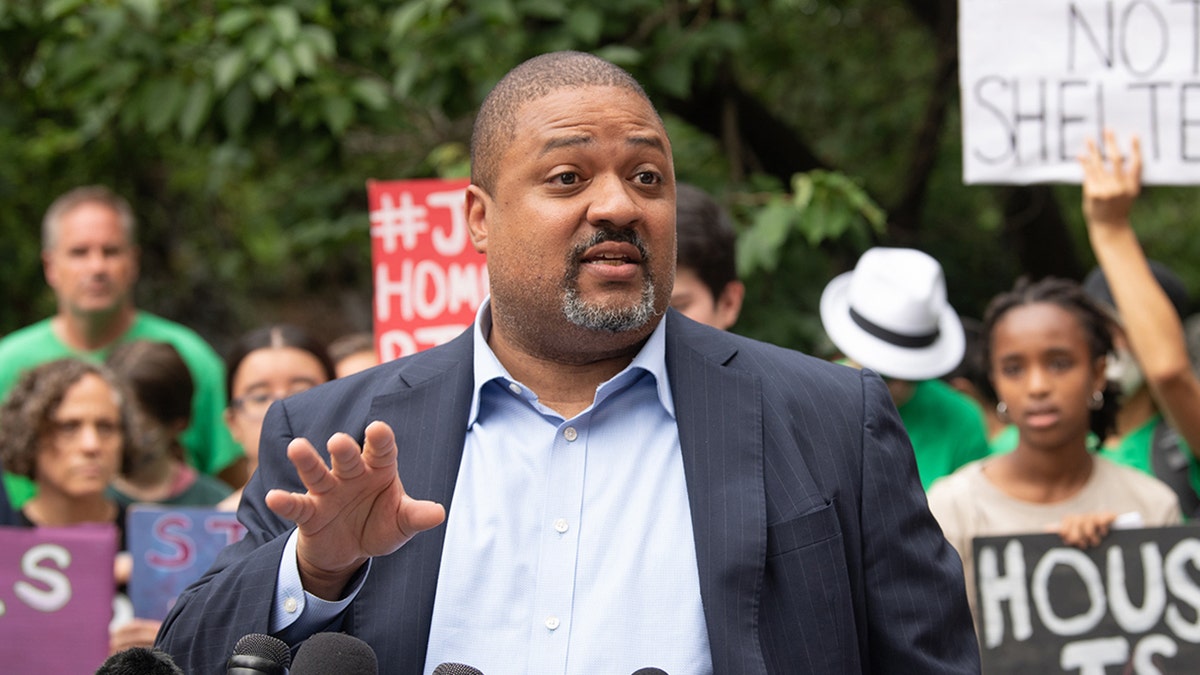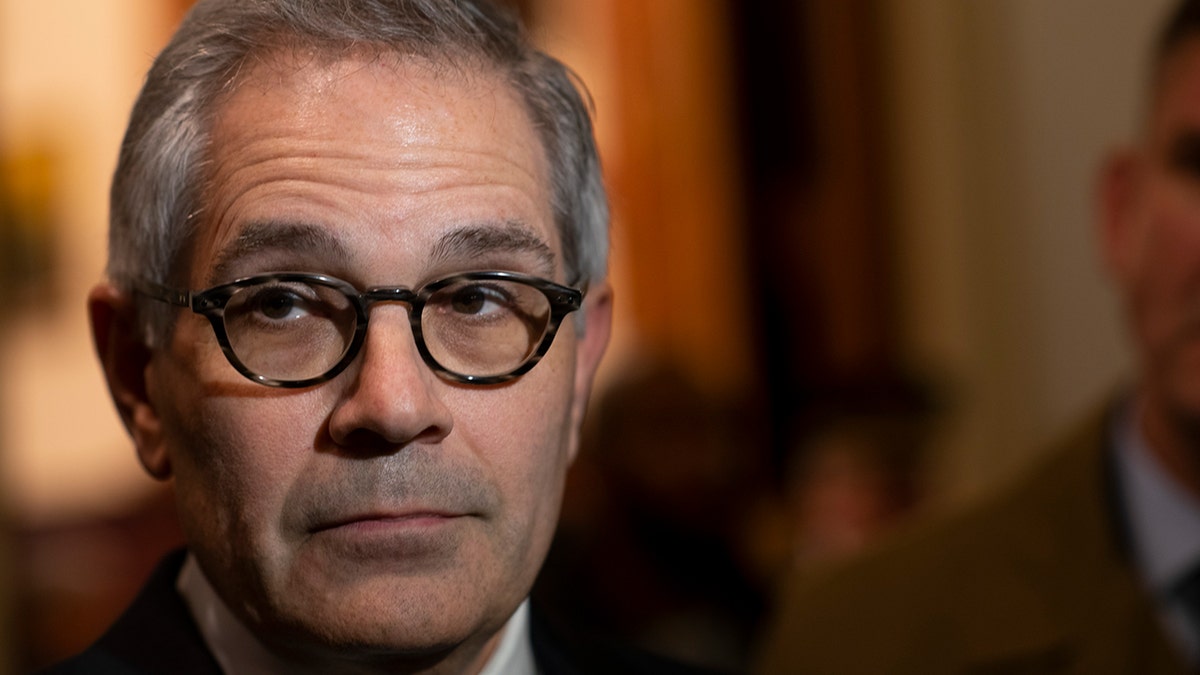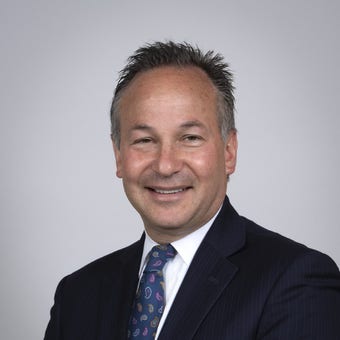California homicides are up 'double digits' while DA Gascon is failing to do his job: Hurt
Fox News contributor Charlie Hurt warns against Los Angeles District Attorney George Gascon's push to appeal a court's decision on the state's three-strike law after Olympian Kim Glass was attacked by a man with two prior convictions.
The recall of San Francisco District Attorney Chesa Boudin, the recent sacking of Tampa’s state attorney by Florida Gov. Ron DeSantis, and rampant violent crime in cities from Los Angeles to Philadelphia, where the district attorneys act more like defense counsel than prosecutors, have fueled the debate about the responsibilities of a head prosecutor as we struggle to keep our cities and towns safe.
A prosecutor’s core job responsibilities are fairly straightforward: (by oath) faithfully, impartially and justly execute/enforce the laws of the jurisdiction; seek justice in every case; enhance public safety; and respect the rights of crime victims. There are a lot of complexities around this position, but prosecutors maintaining their focus on these fundamental duties will be serving their community well.
The duty to enforce the laws of their state is non-negotiable, and not simply because prosecutors have sworn to do so (although that should be reason enough). Predictability and consistency are crucial parts of a fair criminal justice system. Whether or not someone faces the serious consequences of prosecution should not depend upon the policy preferences of the head prosecutor, who was elected or appointed to uphold, not undermine, the duly enacted laws of the state.

Former San Francisco County DA Chesa Boudin, left, who was recalled and Los Angeles District Attorney George Gascon, who survived a recall effort. (Getty)
There is a place for "prosecutorial discretion," but such discretion should be exercised at the macro level by establishing enforcement priorities to ensure public safety, not as a hollow justification for the wholesale abdication of the responsibility to enforce a law with which that prosecutor disagrees. To illustrate, when gun violence spikes, effective prosecutors will exercise their discretion to prioritize gun crime prosecutions, which might result in de-emphasizing prosecutions of other, nonviolent crimes, but not ignoring them (and certainly not announcing you will ignore them).
LOS ANGELES DA GEORGE GASCON RECALL EFFORT SHINED LIGHT ON HIS RADICAL POLICIES, DEPUTY DA SAYS
Prosecutorial discretion is appropriate at the "micro" level, too. A prosecutor should be open to exercising their discretion not to pursue a particular case, or to employ leniency, when unique circumstances of an individual defendant warrants. That is part of doing justice in every case, the second cardinal rule of being an effective prosecutor.

Manhattan District Attorney Alvin Bragg. (Barry Williams/New York Daily News/Tribune News Service via Getty Images)
But doing justice in every case requires more than that. In general, it demands evaluating the totality of the circumstances – the nature of the crime, the harm to the victim, the strength of the evidence, the defendant’s criminal history – to determine the best approximation of a "just" outcome, and then pursuing that end. Notice, it does not involve considering the defendant’s or victim’s race, nor sacrificing a strong case and the victim’s interests in an attempt to cure society’s ills, thereby jeopardizing public safety.
Prosecutors must be keenly aware of their critical role in public safety. The prosecutor’s office sets the tone for law enforcement in their area. Criminals are very attuned to the tendencies of the prosecutor, as are the police. Those who "catch and release" people with illegal guns, for example, send a message that criminals can carry prohibited weapons with impunity. Minimal consequences for violent crime begets more violent crime, which spreads fear among residents and undermines the vitality of the community.
Public safety also demands the prosecutor support the police. This means following through on prosecutions when they develop strong cases, and publicly recognizing their service to their community. Prosecutors can significantly influence the public’s view of law enforcement – if they disrespect the police, how can we expect the public to respect them?
Conversely, support for the police cannot be blind – the prosecutor must foster trust in the criminal justice system by holding officers accountable for their misdeeds when necessary. In addition to bolstering the community’s trust in law enforcement, such a course elevates the profession, thereby enhancing public safety.

Philadelphia District Attorney Larry Krasner (Mark Makela/Getty Images)
Finally, a prosecutor should always consider the rights of crime victims when making key decisions in a case. In a very real sense, the victim is their client. Prosecutors must treat them with compassion, keep them informed, advocate on their behalf, and consider their wishes in plea negotiations and sentencing recommendations. Regardless of the result, victims should believe they were respected, informed and heard, and that their concerns were, at a minimum, elevated over those of the perpetrator.
CLICK HERE TO GET THE OPINION NEWSLETTER
Supporting crime victims is a moral imperative, but there is a practical benefit as well; they are often key witnesses in a case, and positive interactions with the prosecutor’s office will keep them engaged in the prosecution, thereby improving the odds for a successful result (and thus, enhanced public safety).
Adhering to these four principles served me well over five years as the county prosecutor in Burlington County, New Jersey. It is worth asking whether the "progressive" district attorneys in Los Angeles, Philadelphia, New York, etc., are adhering to this formula, and whether their cities would be better off if they did.











































